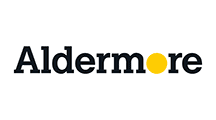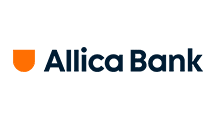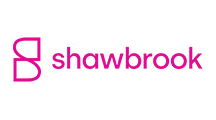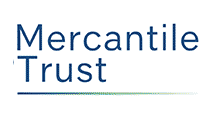Can I get a commercial mortgage?
Lots of people can get a commercial mortgage (for a building a business is run from). If you want to run your own business from the property, industry experience can give you more options with commercial mortgage lenders.
If you want to invest in a commercial property, but rent it out, having experience in doing this also gives you more lender options, but both may be achievable without experience.
Chat to our expert broker team to discuss your situation.
Factors that may affect your application
- Your credit history
- Not having enough money for a deposit (you can use cash, or equity in other property you own)
- The value of the property being less than you expected
Chat to our advisors on live chat, via the phone, or get a call-back we're here to help.
Today's rates
Commercial mortgages are available with variable or fixed interest rates. High street lenders tend to offer variable rates and challenger banks tend to offer fixed rates. Use our commercial mortgage calculator to compare today’s rates.
Eligibility
- First time buyers to experienced landlords
- You must be over 18 years old
- Minimum deposit 25% of the property value
- Upper age limits at application are flexible
- Low personal incomes are accepted
- Property, pension and employment income is OK
Ready to get started?
Your personal advisor will call. Direct lines start 01603. Get today's rates, help, or apply. Lender terms provided in as little as two hours!
What is a commercial mortgage?
A commercial mortgage helps you pay for a business premises. They are sometimes called a business mortgage. You might run your own company from the property. Or, you might buy a property to rent out to another/some other companies.
Why choose a commercial mortgage?
This type of borrowing can help you buy and use, or buy and let out property. You can:
- Buy property
- Remortgage property
- Raise capital
- Spread the cost of moving your company to a new location
- Spread the cost of expanding your business to multiple new locations
- Expand your property portfolio
Mortgage term
Your mortgage term can be from three to twenty-five years.
Loan size
Your loan size can start from £30,000. There is no real limit on the loan amount you can borrow. The loan amount will depend on the income from the rent and the maximum loan to value a lender offers.
How much do I need for a commercial mortgage deposit?
Commercial mortgage lenders will want you to put down a deposit of 25%-40% of the property value.
A commercial investment mortgage (you are renting the property to tenants) has a maximum loan to value of 75%. This means a minimum deposit of 25% of the property value.
An owner-occupier mortgage (you will run your company from the property) has a maximum loan to value of 75%. This means a minimum deposit of 25% of the property value.
The type of building you are borrowing for will also affect the amount of deposit you need. Some properties are a higher risk to lenders than others. If your property is higher risk, you may need a higher deposit.
If you are struggling to raise cash for a deposit, you may be able to borrow against other property you own. If you have enough equity available (you own a large percentage of the property).
If the building is for the medical industry, deposits can be lower, or may not be required at all.
Arrangement fees
The arrangement fee for a commercial mortgage is usually a percentage of the loan amount. It can be from 1% or up to 6% depending on the lender.
Arrangement fees can be added to the loan, if the loan to value allows for this. This will increase your borrowing. It may increase the time it takes you to repay the loan. This can mean the total amount you repay would be higher than if you paid the arrangement fee.
Monthly mortgage interest
If you take out a variable rate mortgage, the interest rate is based on another rate of charge, often the Bank of England Base Rate. This means your interest rate might be the current base rate plus a given margin. If the Base Rate goes up, your monthly payment will increase. If the Base Rate goes down, your payment will decrease.
If you take out a fixed rate mortgage, your interest rate will be the same for the deal period. The deal period is also called the initial rate period. This is usually over five years, but some lenders may offer 2 year deals.
When you come to the end of the initial rate period, you can remortgage. It may benefit you to go to another lender. To be sure you get the best deal, we will always research the whole of the market for you.
Living on a commercial plot
You might buy real estate that has a commercial building and a home you will live in. This is ok, but be aware you can’t use more than 40% of the plot for your own home. If there are other homes on the land that you will, or are, renting out, there are no limits on this.
Buying land
You can also get a commercial mortgage on land, with or without planning permission. If you then want to build on the land, you can use development finance.
Buying through a limited company
You can take out a commercial mortgage via a limited company. Investing through a limited company won’t impact your mortgage rate.
You can have up to four directors and unlimited shareholders. If a shareholder owns 20% of the companyor more, it is likely they will need to be named on the mortgage.
Typically your personal finances are separate from a company you are a director of. However, commercial mortgage lenders typically ask directors to provide personal guarantees on the mortgage.
What is the difference between residential and commercial mortgages?
Residential mortgages are for domestic properties the owner intends to occupy, the commercial equivalent are for properties that will be used for business purposes.
You can buy both commercial and semi-commercial properties. Either to operate a business company from, or to rent out to a company or companies.
Examples of commercial properties: warehouse, office, shop, restaurant, garage, leisure centre, hotel.
Examples of semi-commercial properties: (these would need a semi-commercial mortgage) flat above a shop, multiple rental properties and businesses on one plot, a residential home and business on the same plot, a terrace with houses and business premises.
What is the difference between a buy to let and a commercial mortgage?
Buy to let mortgages are for homes being rented out to tenants. Commercial mortgages are for buildings used by a company.
You can take out the mortgage in the following ways:
- Owner-occupier: you will run your own company from the building.
- Commercial investment mortgage: you will rent out the whole building
Or, you can run your own company from the part of the building and rent other parts of it to other businesses. Depending on the amount you occupy, you will fall into one of the two categories above.
Commercial mortgages generally have higher interest rates than buy to let mortgages. This is because they carry more risk to the lender.
If you want to invest in a buy to let property via a limited company you do not need a commercial mortgage. You need a buy to let mortgage for a limited company. The type of mortgage relates to the building use, not the type of applicant.
We work with a wide range of commercial mortgage lenders, including:
Why choose Commercial Trust as your commercial mortgage broker?

Apply with ease by phone
It couldn't be easier to secure a mortgage with our expert advisors. Ask all your questions and arrange an application on the phone from your sofa.
World class customer service
We'll find you a great deal and take all the admin work off your shoulders, so you can relax while we get your mortgage completed. All the while giving you progress updates.
Specialist expertise
Our whole focus is landlord finance solutions, which means that you will get a recommendation based on detailed knowledge of the latest deals available.
We can help you with...
- Borrowing up to 80% loan to value
- Mortgages with no minimum income requirement
- Mortgages that are flexible on applicant upper age
- Mortgages with dual representation solicitors
- Owner-occupied mortgages
- Investment mortgages based on rental income
- Complex commercial cases
- Portfolio deals
- Limited company applications (trading and SPV)
- First time landlords applications
- Capital repayment or interest-only
- Raising capital from equity, for a range of uses
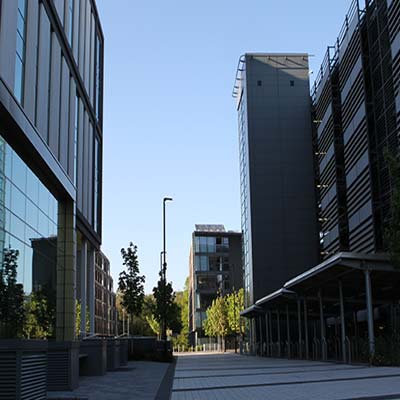
By separating this client's commercial finance from their buy to lets, we halved their costs
Handling a portfolio in the right way can achieve significant savings. Over 5 years the total reduction we achieved was £262,000 across buy to let and commercial mortgages.
Find out moreCosts involved in a commercial mortgage
Lenders may charge you for the valuation conducted on your property. They often also charge a product fee, sometimes this can be added to the mortgage.
You will need a conveyancing solicitor who will charge fees. Read our guide to choosing a conveyancing solicitor.
We charge a broker fee for our work. You pay in two parts. A booking fee, once we have found you a mortgage deal, at application. The majority of our fee is paid at completion of the mortgage.
Every mortgage comes with monthly mortgage costs based on the mortgage interest rate the lender charges. These are paid on either an interest-only or capital repayment basis.
How to apply
1
Tell our advisors about the property you are investing in, your needs and circumstances. If you have credit concerns, chat to us about them, so we can put you with the right lender.
2
Your advisor will find the best possible deal from a search of thousands of products. They will get you a lender decision in principle, this requires a soft credit search (occasionally it is a hard credit search).
3
Your advisor will call to discuss the product they have found for you. You will be presented with one mortgage, which is the best match for all your needs and offers you the most cost effective option.
4
On your instruction, your advisor will submit your mortgage application. Your account manager then does all liaison and administrative work to complete the deal, whilst keeping you updated at every step.
What our clients say about us
Frequently asked questions
Your mortgage term can vary from 3 to 25 years. Some are capped at 15 years.
Unlike residential mortgages, commercial mortgages are available for much shorter periods. But, the terms offered vary with each lender. The terms of the mortgage are often dictated by the property. This will include its size, type, location and value.
There are some lenders that, on paper, offer 5 year commercial mortgage terms – but the payments are actually amortised over longer terms. This means they are calculated over a longer period, such as 25 years, which makes them more affordable month-to-month.
To find out how much you would pay monthly you can use a commercial mortgage calculator.
Buying property: Buying a business premises is more complex than buying residential property. The pro-cess is slower because of this. Your conveyancing solicitor will have a big impact on the speed the deal goes through. It is important your solicitor has experience in commercial property buying. Different lenders also have different processing timescales.
Commercial completions take 4-5 months. Depending on the loan size, LTV and lender, this could potentially be faster.
Remortgaging property: remortgages tend to be quicker than purchases. This is because there is less legal work involved.
Buying with a commercial bridging loan: Are you are under the pressure of time? A commercial bridging loan may be better suited to your needs. They complete faster.
If you want to buy a commercial property and don't have the full amount, a commercial mortgage can help.
You can buy property, remortgage and raise capital with a commercial mortgage. It is possible to capital raise against a buy to let property to buy a commercial property.
Compared to residential mortgages, commercial mortgages carry more risk to the lender. For this reason they tend to be higher in cost.
Lender ‘criteria’ determines who will be eligible for a mortgage. These are rules lenders set around who they will lend to, and what type of property they will accept. These rules are all linked to the level of risk associated with a lending scenario.
You can use a commercial mortgage to buy a property and let it out to third parties (an investment mortgage). Or, you can operate your own business from it (an owner-occupier mortgage).
Inexperienced landlords may need a bigger deposit than an experienced landlord.
But, if you an owner-occupier and have a profitable business, lenders can be more flexible. To show this, you will need accounts for over a year. Your accounts must show that you can easily afford monthly mortgage payments.
You may worry that your age is a barrier, but, commercial mortgage lenders are flexible on upper age limits.
Deposits on a commercial mortgage are higher than with a buy to let or residential home.
A specialist broker can help you by discussing your specific scenario. They will tell you if there are any limiting factors affecting your ability to borrow. A broker can search across the market to find you a suitable deal. They will do all the due diligence needed to ensure the product suits you.

